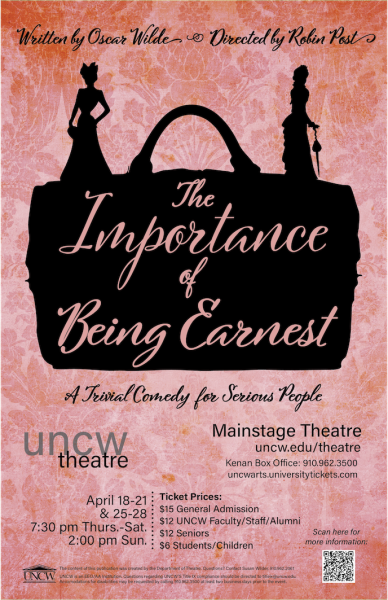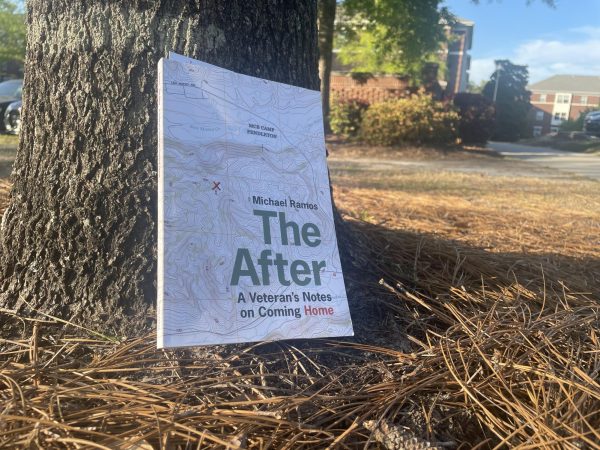Author reading held by UNCW Creative Writing Department
February 1, 2013
The UNCW Creative Writing Department held a reading for authors Karen Bender and Malena Mörling on Thursday, Jan. 31. Both authors are also professors for the department, and students, friends and colleagues filled the Kenan lecture room to show their support.
“Malena’s poetry basically exploded my brain. I felt like there were all these doors opening up in my brain; the same is true for Karen, too,” said Garrard Conley, first year fiction MFA student.
The reading showcased Bender’s second novel, “A Town of Empty Rooms.” She said the novel was about a family who moved to North Carolina from New York and the struggles they faced when they tried to integrate into the community.
She read from three sections of her book. Each one portrayed the lack of communication that existed amongst the family and in the community. The novel’s theme is centered on the idea that individually, we all struggle to decipher ourselves amongst others’ silence; we cannot know each other’s thoughts and because of this, it makes it difficult for us to know who we all really are, or who we should be.
“The loneliness and the sadness of that, and the truth of it, and just knowing that someone figured that out, too; I don’t know, makes me feel a little less alone in it,” said professor Jennifer Dotsey.
Mörling showcased several of her personal poems for the reading: “The River,” “See the Second,” “A Max Box,” “On a Train in Winter,” “It’s Easy” and “Final Analysis.” Along with her own poems, she also read several poems she translated from Edith Södergran’s “On Foot I Wandered Through the Solar Systems,” such as “Evening,” “The Stars,” “Life’s Sister,” “Hell,” “The Trees of My Childhood,” “The Moon,” and her favorite, “Decision.”
“When you’re translating somebody, you want to honor them. You want to make sure that the work will be a match to the original in some way or another; it can never be the original, nor is it a substitute for the original, it’s a new thing-an additional incarnation of the original,” said Mörling.
She chose to translate Södergran because she always loved to read her work, and in her experience, she’s learned that the first step in translating is finding something that you love to translate. There has to be a passion for the work. It helps the translator convey a similar energy as the original and allows her to honor the original, in order to do it justice.
In Ancient Sumerian, “translate” means “to turn into,” and for Mörling that idea exposed the effortlessness in translating, the deeper connection to the original. Part of the process of a poem is how it travels through the world from language to language. Edith Södergran’s poems have been translated into 30 different languages, allowing them to live on.
Some in the audience felt hopeful and lifted up by both of the authors. They were once where many of the people that filled the lecture room are now, and it gives them comfort knowing that they don’t have to tackle their writing process alone. There are people close to them that they can turn to for guidance and reassurance.
“Karen and Malena are just the most wonderful people, as well as the most incredibly blessed and talented artists. To get to see the beauty and the strangeness and the joyfulness of the world, through their eyes, it’s just such a gift,” said Dotsey.
For those aspiring to be the next Ernest Hemingway, the authors offered tips on how to help beginner writers. When writing, you must always focus on your honesty; being true to your emotions, your craft; the focus of details, dialogues and scenes, your patience; constant revision, and your overall writing process.
Everyone’s writing process is different, but the beauty of writing it’s never static-it’s always changing.





















